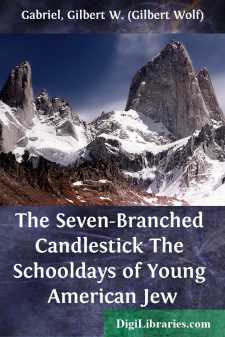Categories
- Antiques & Collectibles 13
- Architecture 36
- Art 48
- Bibles 22
- Biography & Autobiography 814
- Body, Mind & Spirit 145
- Business & Economics 28
- Children's Books 17
- Children's Fiction 14
- Computers 4
- Cooking 94
- Crafts & Hobbies 4
- Drama 346
- Education 58
- Family & Relationships 59
- Fiction 11834
- Foreign Language Study 3
- Games 19
- Gardening 17
- Health & Fitness 34
- History 1378
- House & Home 1
- Humor 147
- Juvenile Fiction 1873
- Juvenile Nonfiction 202
- Language Arts & Disciplines 89
- Law 16
- Literary Collections 686
- Literary Criticism 179
- Mathematics 13
- Medical 41
- Music 40
- Nature 179
- Non-Classifiable 1768
- Performing Arts 7
- Periodicals 1453
- Philosophy 66
- Photography 2
- Poetry 897
- Political Science 203
- Psychology 45
- Reference 154
- Religion 516
- Science 126
- Self-Help 85
- Social Science 82
- Sports & Recreation 34
- Study Aids 3
- Technology & Engineering 59
- Transportation 23
- Travel 463
- True Crime 29
Our website is made possible by displaying online advertisements to our visitors.
Please consider supporting us by disabling your ad blocker.
The Seven-Branched Candlestick The Schooldays of Young American Jew
Categories:
Description:
Excerpt
BY WAY OF PROLOGUE
"Years of Plenty" was the name an Englishman recently gave to a book of his school days. My own years of secondary school and college were different from his, by far, but no less full.
I shall only say by way of preface that they numbered seven. There were two of them at high school, one at a military school on the Hudson, and four at our city's university.
Seven in all. Because they were not altogether happy, I have no right to think of them as lean years. For each one of them meant much to me—means as much now as I look back and am chastened and strengthened by their memory. Each is as a lighted candle in the dark of the past that I look back upon. And I like to imagine that, since there are seven of them, they are in the seven-branched candlestick which is so stately and so reverent a symbol of my Faith.
For it was my school days which gave me that Faith.
Born a Jew, I was not one. And this I can blame on no person excepting myself. Before my parents' death, they had urged me, pleaded with me to go to Sunday school at our reformed synagogue, to attend the Saturday morning services, to study the lore, that I might be confirmed into the religion of my fathers. That they did not absolutely insist upon it was because they wanted me to come to my God gratefully, voluntarily, considering his worship an exercise of love, of gladness, and not a task of impatient duty. I know that it must have grieved them—I know it now, even if I only half-guessed it then in that distorted but instinctive way that boys do guess things—and yet they said little to me of it.
Once or twice a year they took me with them to a Friday night service. I was too young, perhaps. I am willing to use my youth as an excuse for my falling asleep, or for my sitting uneasily, squirming, yawning, heavy-eyed, uninterested, unmoved ... hungry only to be out into the streets again, and back in my own room at home, with my copy of "Pilgrim's Progress," or "The Talisman," between my knees.
At best, I can excuse myself only because I lived in a neighborhood distinctly Christian. It was on one of those old, quiet streets of the Columbia Heights section of Brooklyn that our house stood. There was a priggish sedateness to it. There was much talk on either hand of "family": the Brooklyn people—of that neighborhood, anyhow—seem to set much stock by their early settling ancestors. Near our house was a preparatory school for girls and another for boys; they were hotbeds of snobbery and prejudice, these schools. The students who attended them had to pass down our block on their way home from school. Often, when they saw me playing there, some of them would stop and make fun of me and tease me with remarks about the Jews. I was a boy without much spirit. I always resented the taunts—but I always lacked the courage to call back ... and if my eyes did blaze involuntarily with anger, I usually turned away so that these bigger boys should not be able to see them.
My fear was behind it all. I was afraid to fight back....


